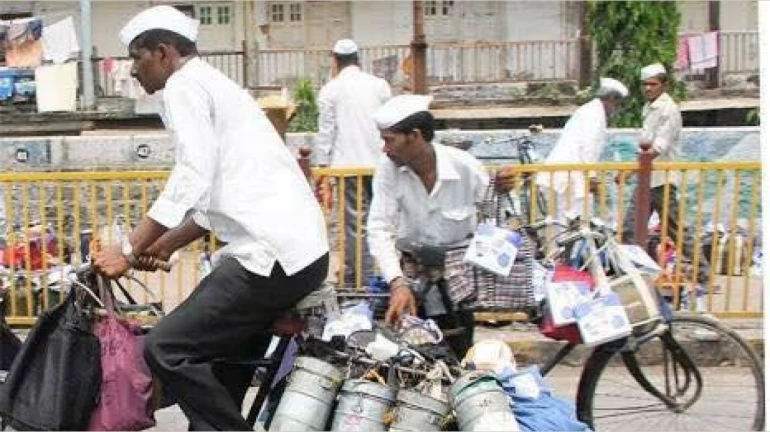
Nearly 25 dabbawalas in Mumbai received state-of- the-art electrical motorcycles for distributing lunchboxes in the city, aimed at sustainable mobility.
The motorcycles were distributed jointly by city-based non-profit body Waatavaran Foundation, along with India Infoline Finance Limited (IIFL) and the Brihanmumbai Municipal Corporation (BMC).
Speaking at the event, Minesh Pimpale, deputy municipal commissioner (Environment and Climate Change), BMC, said the initiative will help reduce vehicular emission. This initiative is really going to encourage other last mile delivery companies to shift to zero emission vehicles or non-motorised mobility.
Of the total dabbawalas, 63 per cent of them travel more than 12km daily by cycle to deliver tiffins, revealed a study carried out by the Waatavaran Foundation highlighting their significant contribution to sustainable urban transport.
The study also found that 78 per cent of dabbawalas appreciate cycling for its cost-effectiveness, while 53 per cent value its ability to manoeuvre through traffic easily.
However, 46 per cent of dabbawalas cite traffic as a major problem and 26 per cent of them struggle with the lack of safe parking spaces for their cycles.
An overwhelming 89 per cent of dabbawalas expressed the need for separate cycle lanes, emphasising the importance of cycling infrastructure in the city.
Mumbai’s dabbawalas have been an integral part of the city’s identity for over a century now. On a daily basis, dabbawalas deliver 20,000-30,000 lunchboxes daily. Despite the changing times, the mode of transport for the dabbawalas has remained the same.
Considering that the dabbawalas use bicycles for their deliveries, the move of distributing e-motor cycles among them is aimed at empowering them by electrifying their fleet.





